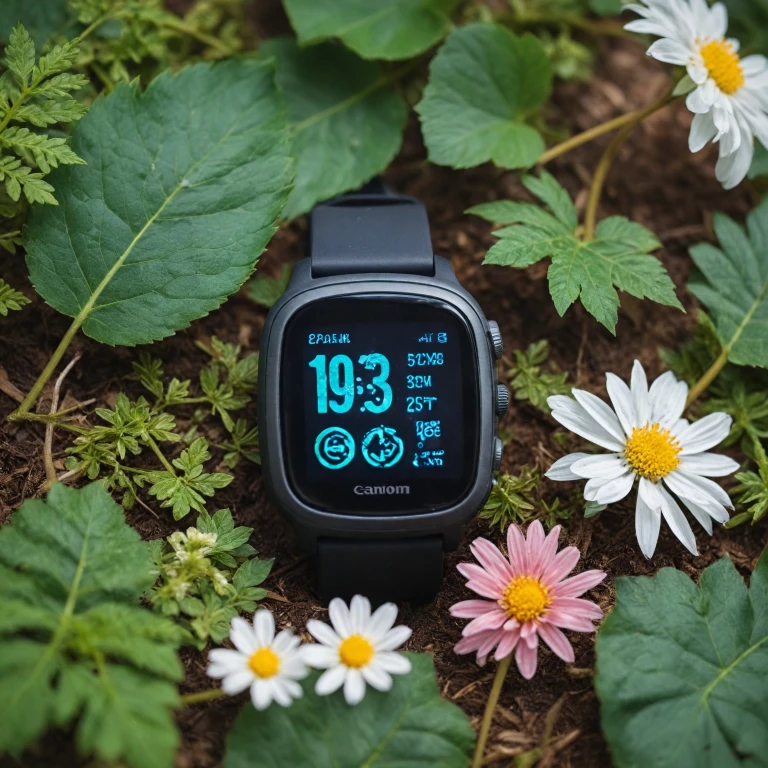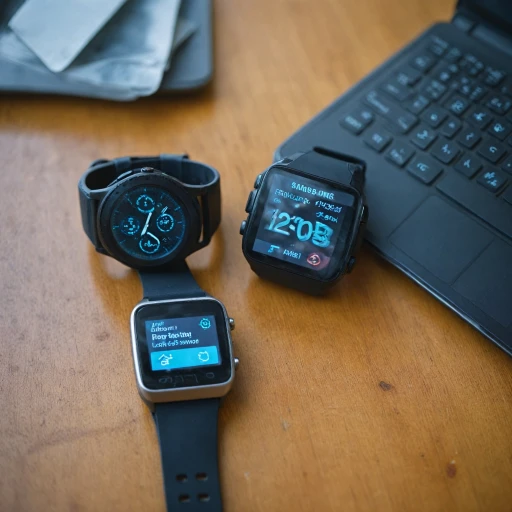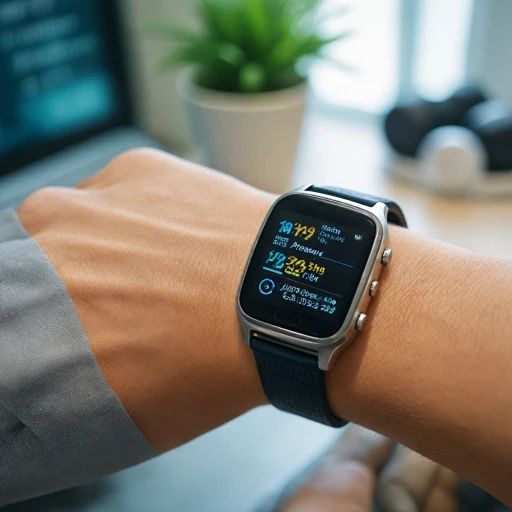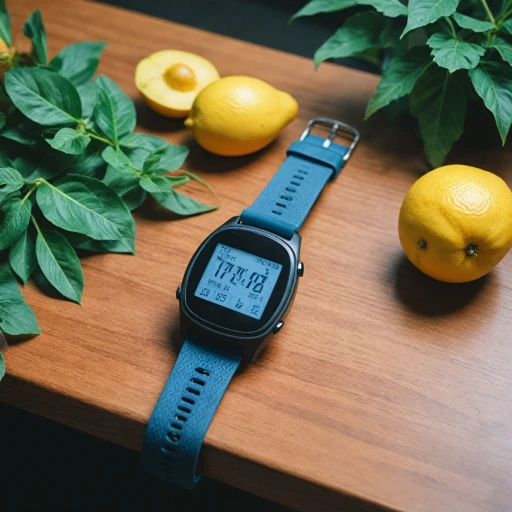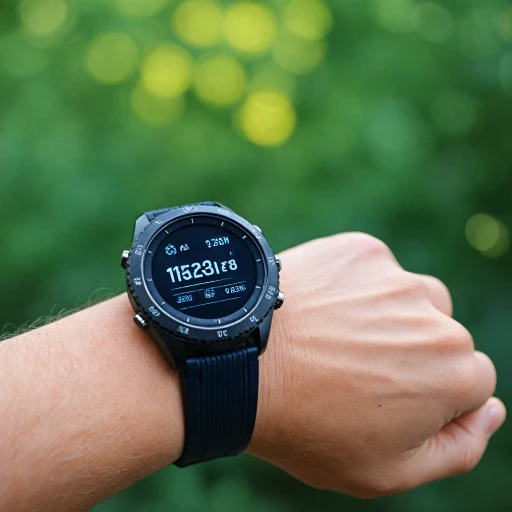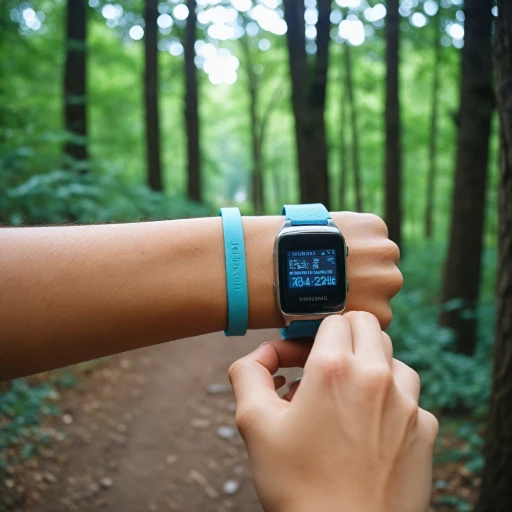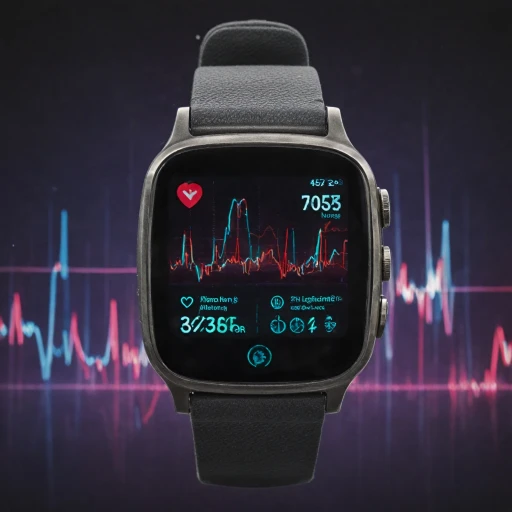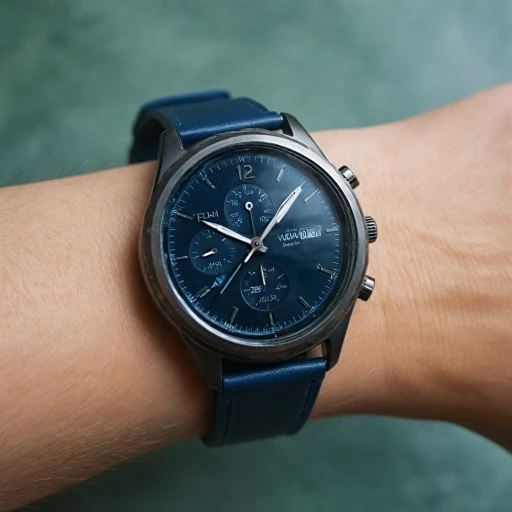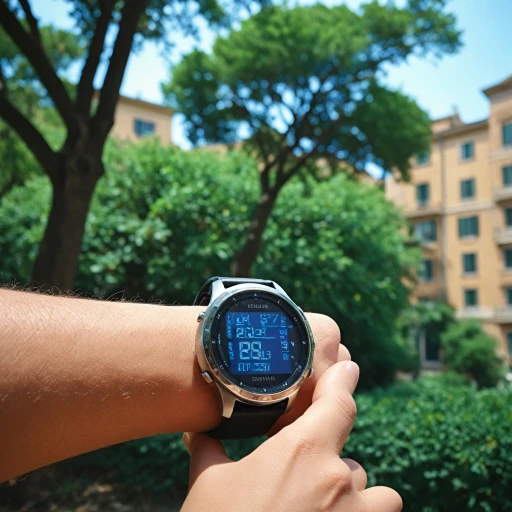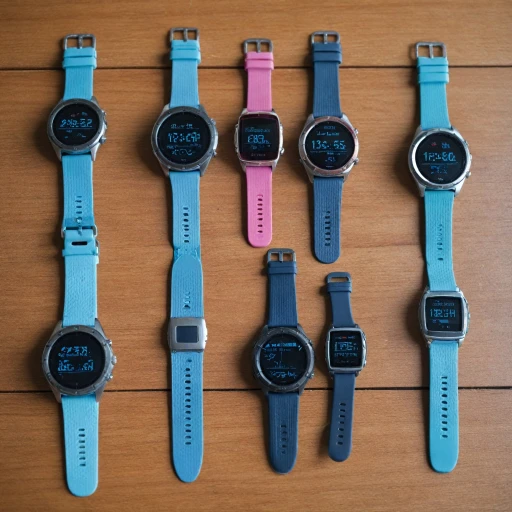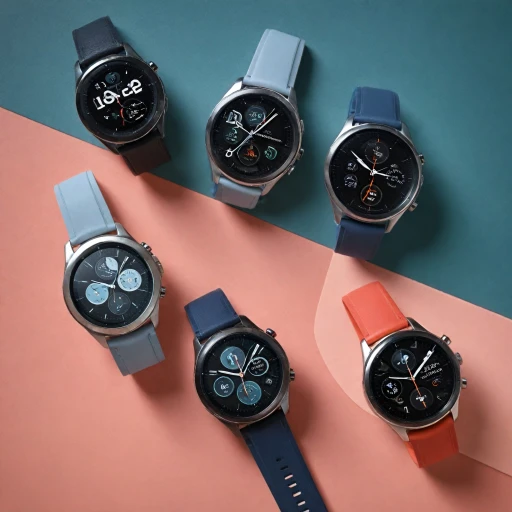
Step Counting and Beyond
Beyond Just Counting Your Steps
The watch on your wrist is more than just a timepiece today. As fitness enthusiasts and health-conscious individuals look for gadgets that can help them stay on top of their health metrics, step counting on a smartwatch has become a fundamental feature. But the journey has gone beyond simply tracking steps. Modern smartwatches come packed with advanced step tracking capabilities and other related components that enhance your daily routine.
A good smartwatch uses integrated GPS to provide precise tracking, allowing you to map out your walking or running routes. High-end models like the Samsung Galaxy, Apple Watch, or the Google Pixel Watch offer detailed real-time data, such as your pace and elevation climbed, elevating your routine fitness activities. The Oura Ring and other wearable fitness trackers are also gaining traction for their compact design and step counting accuracy.
Battery life is essential to consider, especially for those who spend extended time outdoors. Reliable battery performance ensures you're not left without data mid-adventure, even if you're using power-hungry features like GPS tracking.
From reliable step counting to incorporating additional health measurements, the best smartwatch models support your daily hustle by providing a comprehensive overview of your activities. As manufacturers focus on precise tracking and innovative technology, smartwatches continue to be indispensable tools in promoting a healthier lifestyle.
Heart Rate Monitoring
The Role of Smartwatches in Monitoring Heart Health
When it comes to heart health, a smartwatch is more than just a device that tells time. Modern smartwatches like Samsung’s Galaxy Watch or the Apple Watch are equipped with advanced heart rate monitoring technology that allows users to track their heart rate continuously throughout the day and even during sleep.
Fitness enthusiasts often rely on these watches to ensure they're exercising within their optimal heart rate zones, be it using a Google Pixel Watch or a more traditional fitness tracker. This is vital not just for optimizing workouts, but also for preventing overexertion, which could potentially lead to health issues.
Smartwatches utilize sensor technology, such as optical heart sensors, to provide real-time data about your heart rate. This feature has been developed by major brands focusing on health fitness, including the Fitbit and the Samsung Galaxy series, offering insights into your cardiovascular system at a glance. Some smartwatches have even expanded their capabilities to include blood oxygen sensors, giving a more comprehensive picture of your well-being.
Battery life is a crucial feature for these smart devices, as heart rate tracking is continuous. Devices like the Watch Ultra and the Oura Ring address this by optimizing battery efficiency, ensuring users can monitor their heart without frequent charges. The combination of GPS and heart rate data actually offers more detailed tracking when you're on the move.
Innovations in heart rate monitoring have positioned smartwatches as indispensable tools for health-conscious individuals. Not only can they alert wearers of irregularities, but they also assist in monitoring trends over time. Whether you're using a fitness watch, a fitness tracker, or comparing the best smartwatch options available, these devices are aligned in their goal to support a healthier lifestyle.
Sleep Tracking Capabilities
Understanding Sleep Patterns with Your Smartwatch
Smartwatches have revolutionized the way we understand our sleep patterns. While traditional watches simply tell time, smartwatches and fitness trackers like the Apple Watch, Galaxy Watch, and Pixel Watch delve deeper, providing insights previously accessible only in sleep labs. Sleep tracking capabilities in these devices harness advanced sensors and data analytics to provide users with a detailed overview of their sleep. By monitoring movements and heart rate variations during the night, your smartwatch can determine not just how long you sleep, but how well you sleep. These features help identify periods of light sleep, deep sleep, and even the all-important REM sleep. The information gathered by your smart watch is visually represented in an easy-to-understand format on your phone or smartwatch display. For those seeking to optimize their health fitness, knowing how you rest is crucial. Better sleep often correlates with improved heart rate and overall wellness, enabling you to wake up feeling refreshed and energetic. One key feature to consider is battery life. Effective sleep tracking requires your device to be operational throughout the night, and smart watches like the Samsung Galaxy and Apple Watch Series have been designed to minimize power usage during this time, without sacrificing accuracy. Real time feedback allows you to adjust your lifestyle choices to enhance sleep quality. From adjusting bedtimes to identifying habits that interfere with rest, the insights provided by your fitness watch can significantly improve your overall health. For the best results, many users combine this sleep data with other functionality, such as heart rate monitoring and stress tracking. By gathering comprehensive health data, you gain a clearer picture of how different aspects of your life interact and impact your sleep. For a more in-depth exploration of smartwatches that provide robust heart rate monitoring capabilities to complement sleep tracking, consider visiting this guide.Calorie Counting and Nutrition
Understanding Calorie Counting in Smartwatches
Smartwatches have evolved beyond simple step counters to become comprehensive fitness companions. One of the standout features is their ability to track calories burned throughout the day. This function is particularly beneficial for those aiming to manage their weight or improve their overall health fitness.
Calorie counting on smartwatches like the Apple Watch, Samsung Galaxy Watch, and Google Pixel Watch involves using a combination of sensors and algorithms. These devices utilize heart rate data, GPS tracking, and movement analysis to estimate the number of calories you burn during various activities. This data can be invaluable for tailoring your diet and exercise routines.
Integration with Nutrition Apps
Many smartwatches seamlessly integrate with nutrition apps, allowing users to log their food intake and compare it with their calorie expenditure. This integration provides a holistic view of your health and fitness journey, helping you make informed decisions about your diet. Whether you're using a fitness tracker or a more advanced fitness watch, the ability to sync with apps enhances the overall user experience.
Battery Life Considerations
While these features are incredibly useful, they can also be demanding on your smartwatch's battery life. Devices like the Samsung Galaxy Watch and Apple Watch Series are designed to balance performance with battery efficiency, ensuring that you can track your activities without frequent recharging. However, it's always wise to monitor your device's battery usage, especially if you're using GPS and heart rate tracking extensively.
In conclusion, the calorie counting capabilities of modern smartwatches offer a powerful tool for anyone serious about their health and fitness goals. By leveraging the advanced features of these devices, you can gain a deeper understanding of your daily energy expenditure and make more informed lifestyle choices.
Stress and Mood Tracking
Keeping Tabs on Your Emotional Well-being
In our fast-paced society, maintaining mental health is just as crucial as physical health. The integration of stress and mood tracking into smartwatches aims to address the gap by providing insights into your emotional well-being. Advanced sensors in devices such as the Samsung Galaxy Watch and Apple Watch employ technology to estimate stress levels, offering users a window into their mental state. Smartwatches typically assess stress by analyzing physiological markers such as heart rate variability, skin temperature, and even electrodermal activity. Through comprehensive data analysis, these watches can alert you to potential stress build-up and suggest activities to manage it, such as mindfulness exercises or breathing techniques. This approach allows users to make informed decisions for better mental health management. The utility of such features goes beyond stress tracking. Mood tracking capabilities help provide real time data on emotional fluctuations, helping you identify patterns and triggers. This is especially beneficial for those looking to enhance their overall health and fitness, as regular monitoring can facilitate early intervention. The battery life of these smartwatches is designed to support continuous tracking, allowing you to gather ongoing insights without frequent recharging. From the Oura Ring to fitness trackers like the Pixel Watch, the goal is simple: empowering you to take control of your mental well-being through access to an easily digestible stream of data. Reliable and convenient, today’s best smartwatches transform your wrist into a wellness powerhouse—beyond just tracking steps or heart rate. Whether you're diving into sleep patterns or understanding your mood, each feature contributes to a holistic health approach, thereby enhancing your quality of life.Advanced Health Metrics
Exploring Advanced Health Metrics
In the realm of smartwatches, advanced health metrics have become a game-changer for fitness enthusiasts and health-conscious individuals alike. These features go beyond basic step counting and heart rate monitoring, offering a deeper insight into your overall well-being.
One of the standout features in modern smartwatches is the ability to measure blood oxygen levels. This metric, often referred to as SpO2, provides valuable data about your respiratory efficiency and can be crucial for athletes or those with specific health conditions. Devices like the Apple Watch and Samsung Galaxy Watch have integrated this feature, allowing users to track their oxygen saturation levels in real time.
Another impressive advancement is the inclusion of ECG (electrocardiogram) capabilities. This feature allows users to monitor their heart's rhythm and detect irregularities, which can be vital for early detection of potential heart issues. The Apple Watch Series and Samsung Galaxy Watch are among the top contenders offering this advanced health metric.
For those interested in stress and mood tracking, smartwatches now offer features that analyze heart rate variability and other indicators to provide insights into your stress levels. This can be particularly beneficial for managing mental health and ensuring a balanced lifestyle.
Moreover, some smartwatches have started to incorporate skin temperature sensors, which can provide additional data points for tracking health and fitness. This feature, combined with other metrics, offers a comprehensive view of your body's response to different activities and environments.
While these advanced health metrics offer incredible insights, it's essential to remember that they are not a substitute for professional medical advice. Always consult with a healthcare provider for any health concerns.
As technology continues to evolve, the future of smartwatches looks promising, with even more sophisticated health tracking features on the horizon. Whether you're using a Google Pixel Watch, Oura Ring, or any other fitness tracker, these devices are becoming indispensable tools for maintaining and improving health fitness.

